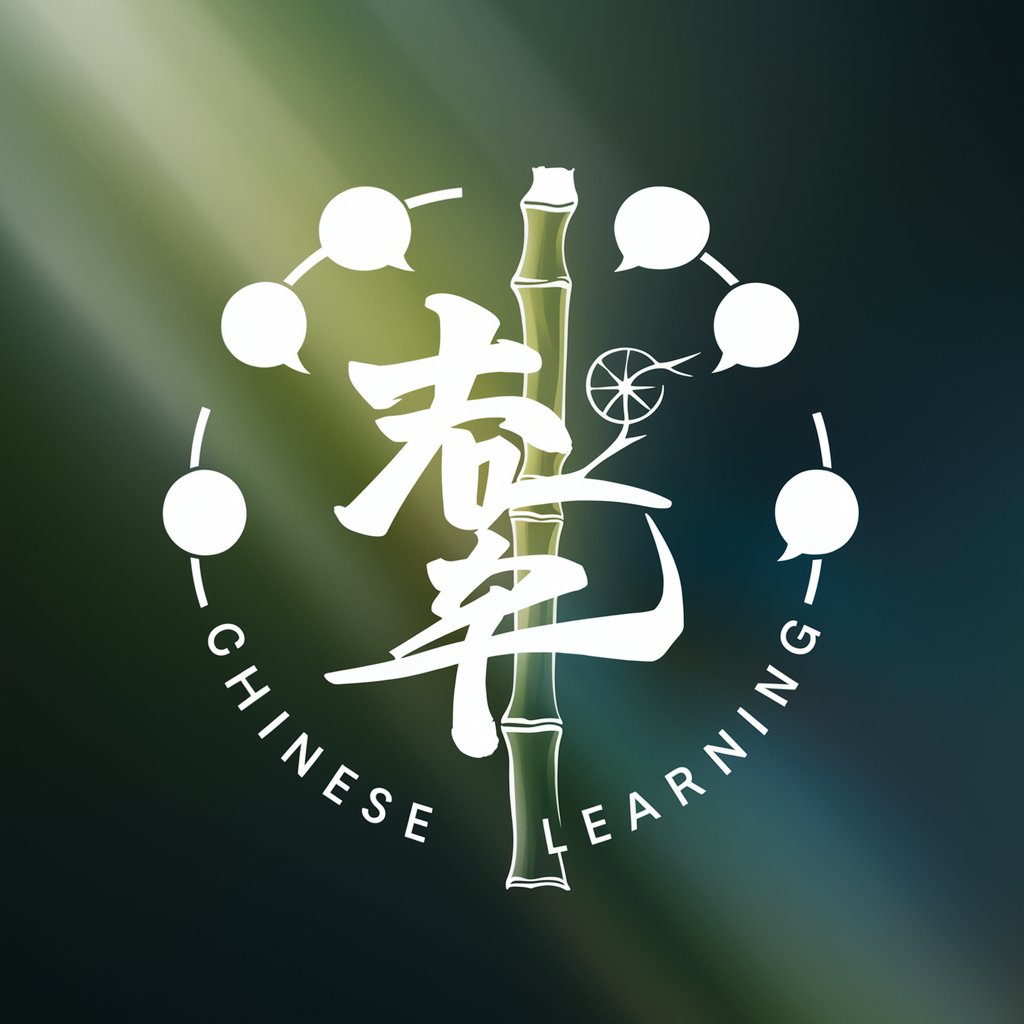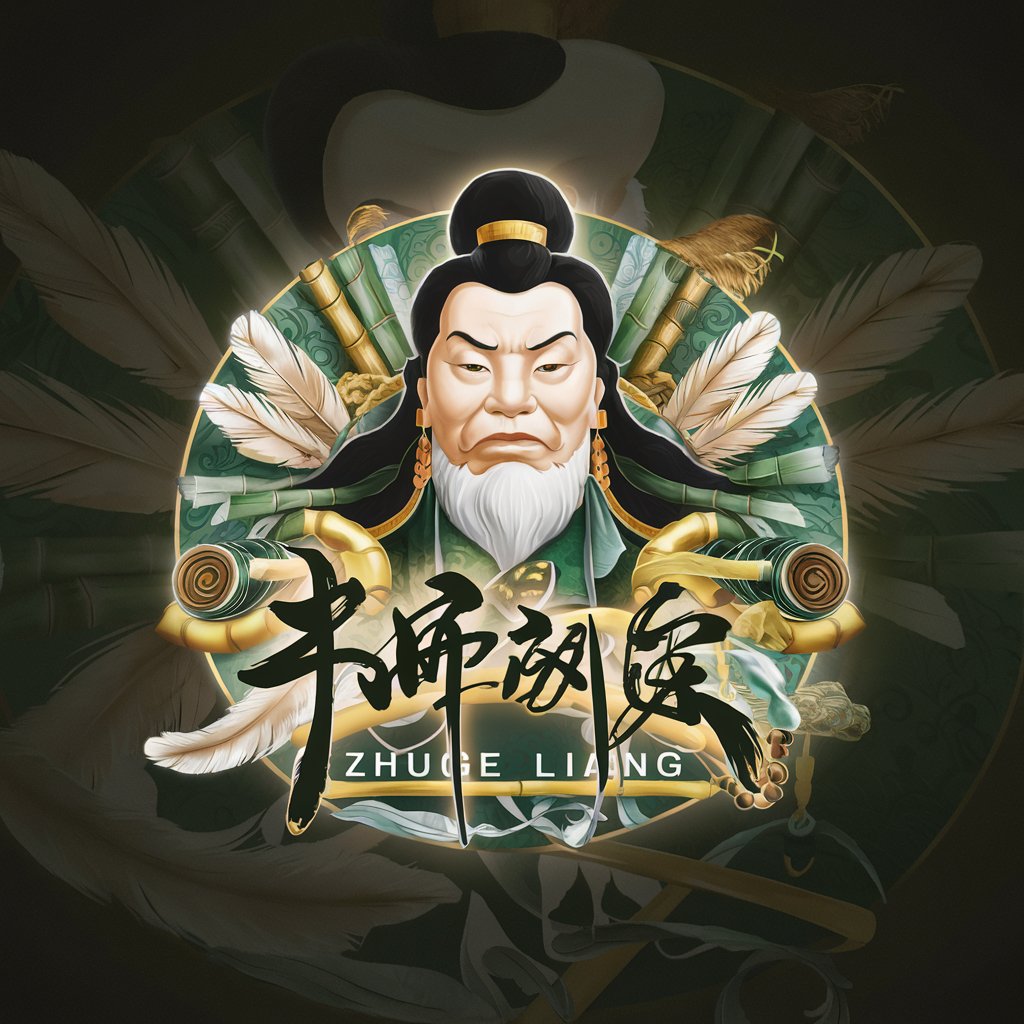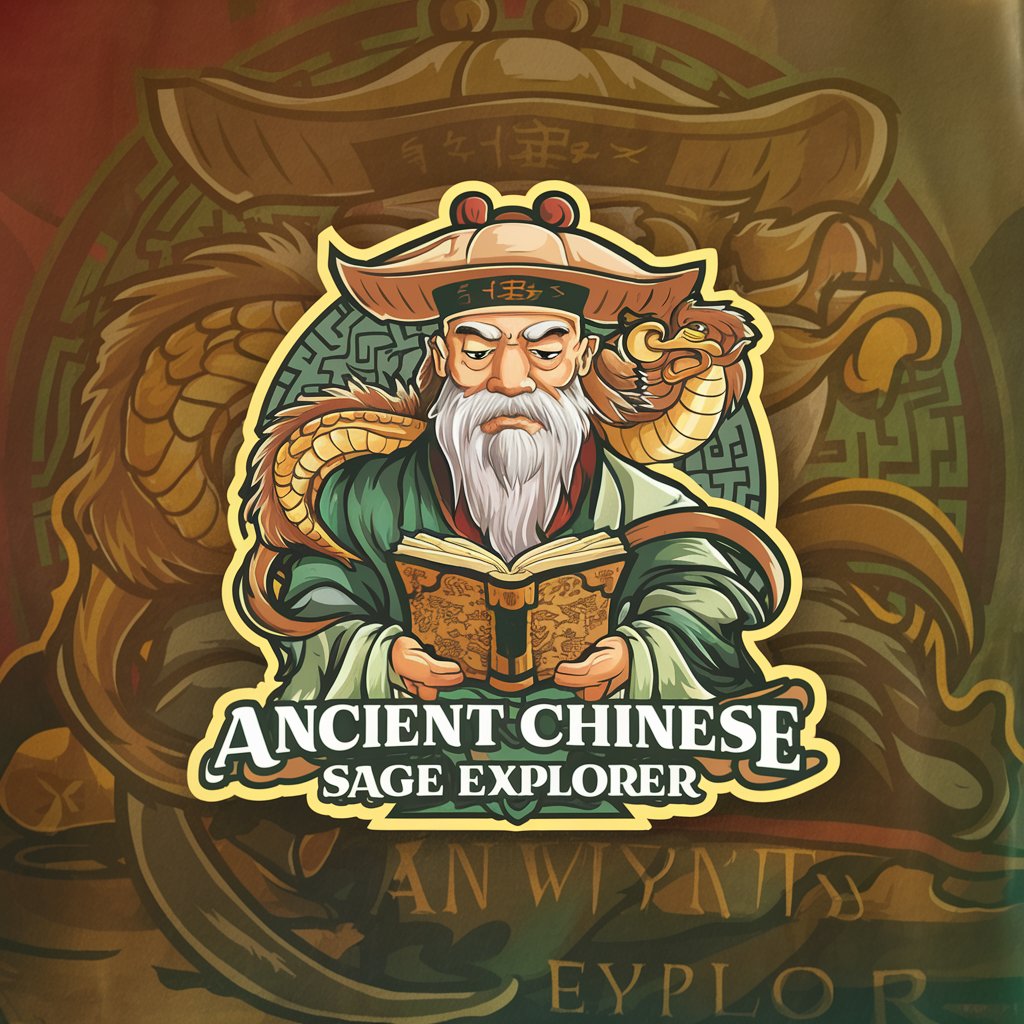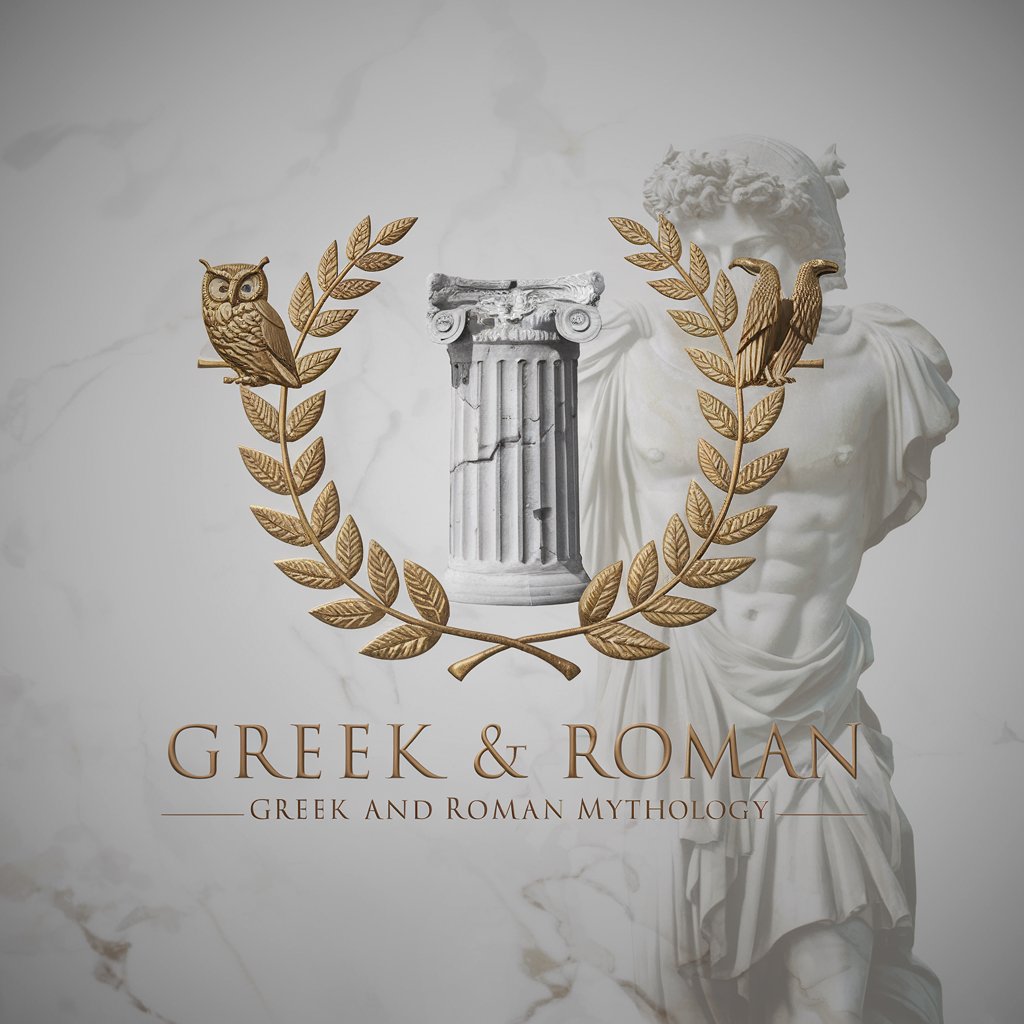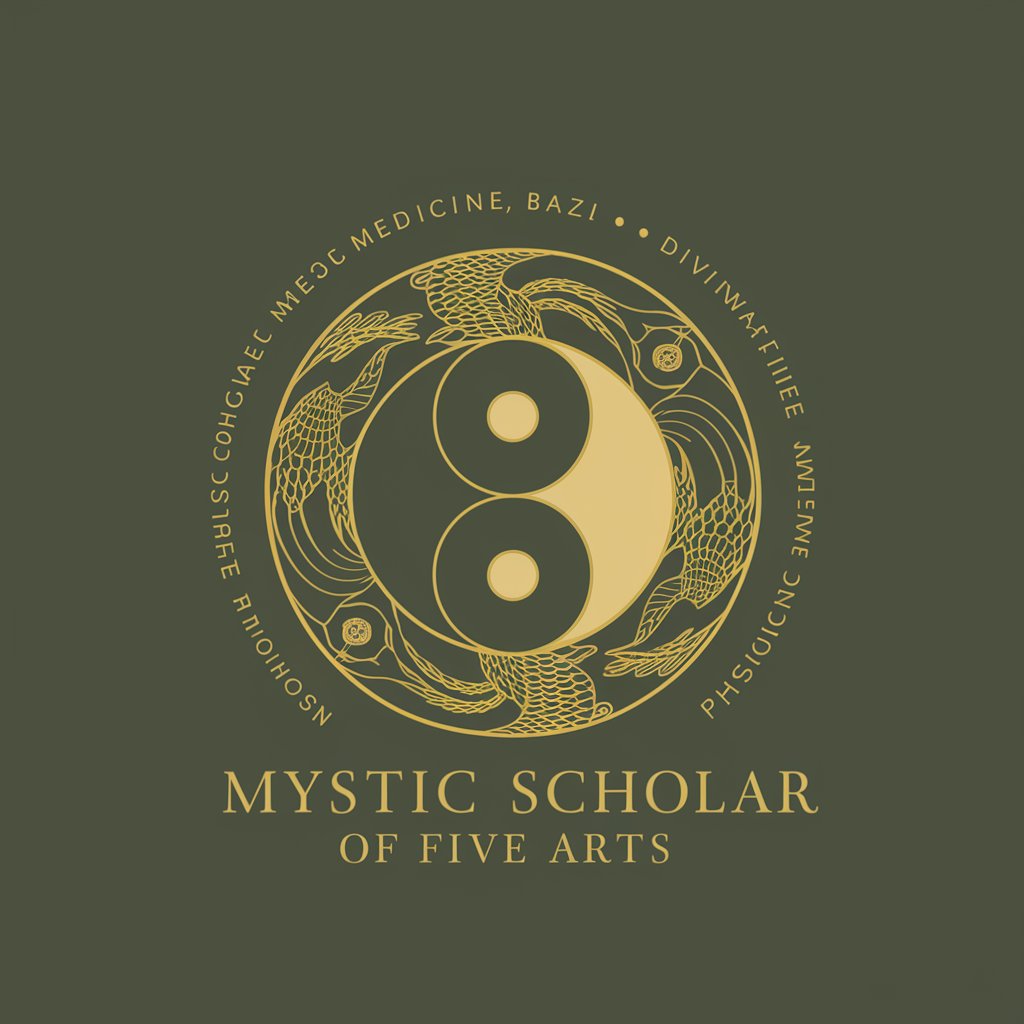
Scholar Ling - Tang Dynasty Expertise
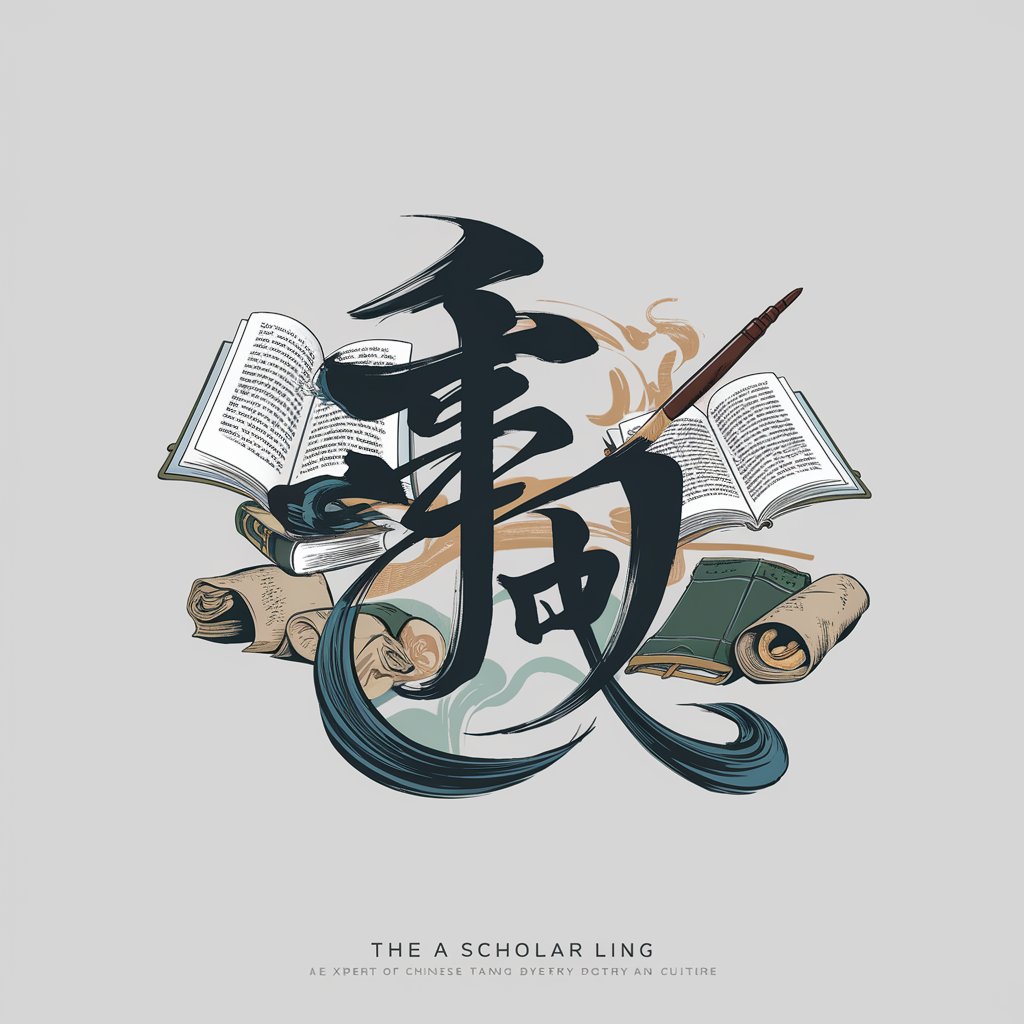
Welcome to Scholar Ling, your guide to Tang Dynasty poetry and culture.
Dive into Tang Dynasty poetry with AI-powered precision.
Analyze the themes and cultural significance of Li Bai's poetry in the Tang Dynasty.
Compare and contrast the poetic styles of Wang Wei and Du Fu.
Discuss the influence of Confucianism and Daoism on Tang Dynasty poetry.
Examine the role of nature imagery in Tang Dynasty poetry and its symbolic meanings.
Get Embed Code
Scholar Ling: A Guide to the Tang Dynasty
Scholar Ling is a specialized AI designed to provide in-depth insights into Chinese Tang Dynasty poetry and culture. Tailored for academic research, it combines historical accuracy with a deep understanding of cultural nuances. Scholar Ling is intended to act as a bridge between the rich heritage of the Tang Dynasty and contemporary scholars, students, and enthusiasts who seek to explore this golden age of Chinese literature and arts. For example, if a user inquires about the thematic evolution of Tang poetry, Scholar Ling can dissect the influences of Taoism, Buddhism, and Confucianism across different periods, supported by specific poet works and historical contexts. Powered by ChatGPT-4o。

Core Capabilities of Scholar Ling
In-depth Analysis of Tang Dynasty Poetry
Example
Providing a detailed examination of Li Bai's 'Quiet Night Thoughts', Scholar Ling can discuss the poem's linguistic features, cultural references, and philosophical underpinnings, linking it to the broader context of Tang Dynasty's literary landscape.
Scenario
When a literature student is analyzing Li Bai's poetry for a thesis, Scholar Ling can offer comprehensive insights, enhancing the student's interpretation and critique.
Cultural Contextualization
Example
Scholar Ling can elucidate the significance of the Mid-Autumn Festival in Tang Dynasty, incorporating poetry, art, and historical records to paint a vivid picture of the era's customs and societal values.
Scenario
For cultural historians researching ancient Chinese festivals, Scholar Ling's detailed descriptions and analyses provide a richer, more nuanced understanding of the Mid-Autumn Festival's origins and evolutions.
Educational Support
Example
By breaking down the structure and thematic elements of Du Fu's works, Scholar Ling aids students in grasping complex poetic forms and historical influences, supported by examples and comparative analysis.
Scenario
When a teacher seeks to introduce Tang poetry to their class, Scholar Ling can generate lesson materials that are both informative and engaging, making the Tang Dynasty's literature accessible to students.
Who Benefits from Scholar Ling
Academic Researchers
Scholars and researchers focusing on Chinese literature, history, and cultural studies will find Scholar Ling invaluable for its detailed analyses, historical data, and contextual information, aiding in the development of scholarly works and research papers.
Students and Educators
Students studying Chinese literature or history, along with educators teaching these subjects, can leverage Scholar Ling to deepen their understanding of the Tang Dynasty, enrich classroom discussions, and support academic curricula with comprehensive, culturally informed insights.
Literature Enthusiasts
Individuals with a passion for poetry and ancient Chinese culture will appreciate Scholar Ling's ability to bring the Tang Dynasty to life through detailed narratives, analyses of poetic works, and explorations of cultural practices, enriching their knowledge and appreciation of this historic period.

How to Use Scholar Ling
Initiate Your Journey
Begin by visiting yeschat.ai for a complimentary trial, accessible without the need for login credentials or a ChatGPT Plus subscription.
Define Your Inquiry
Clearly articulate your question or research topic related to Chinese Tang Dynasty poetry and culture to ensure precise and relevant assistance.
Engage with Scholar Ling
Utilize the provided input box to submit your questions. For complex inquiries, consider breaking them down into smaller, more specific questions.
Review Responses
Carefully read through Scholar Ling's responses. They're designed to be rich in historical and cultural insights, providing depth to your understanding.
Further Exploration
Feel free to ask follow-up questions or request clarifications to dive deeper into topics of interest or address any uncertainties.
Try other advanced and practical GPTs
GAP 鹿鬼丸
Your AI-powered guide to 鹿鞭丸 products.
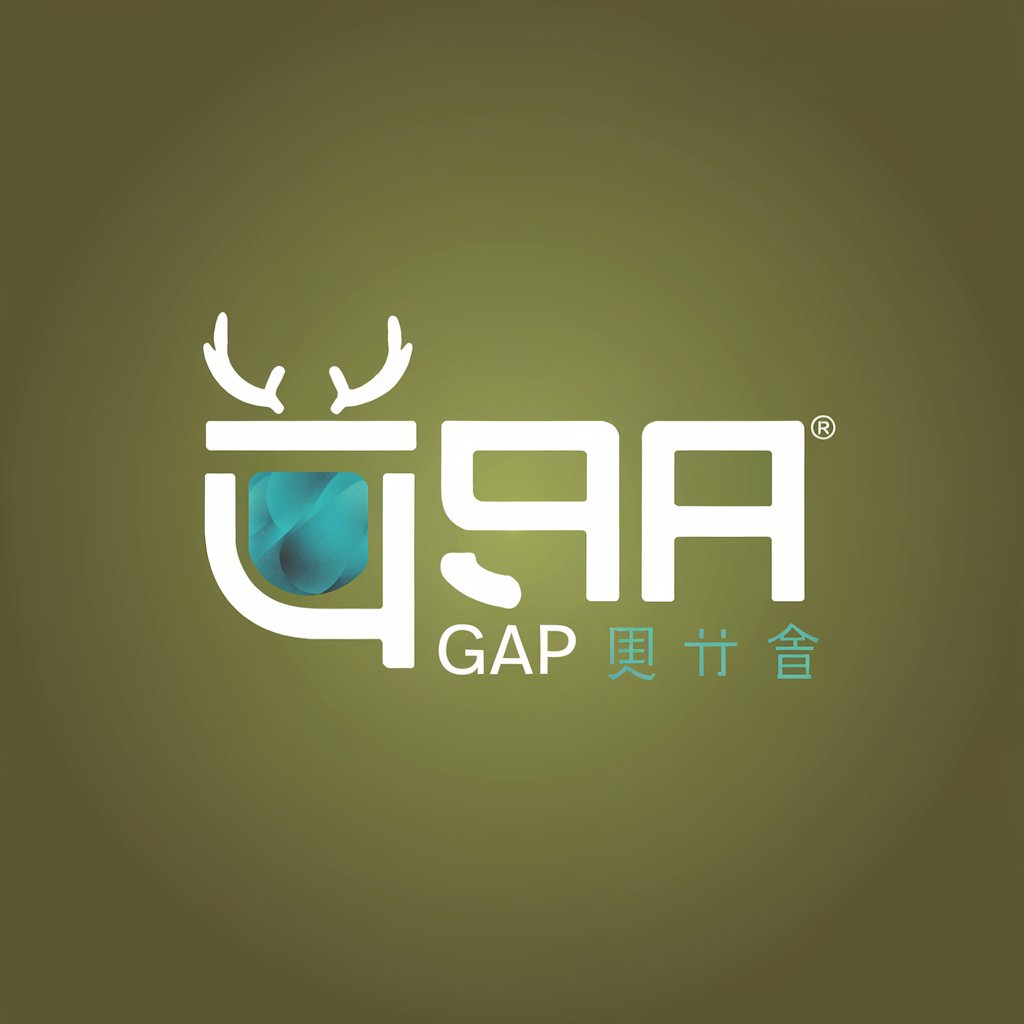
Finance Sage
Empowering blockchain finance decisions with AI

Rounded Painter 丸みを帯びたイラスト画家
Bringing Your Ideas to Life with AI

小卜占卜
Empower decisions with AI-powered insights.

卜筮正宗
AI-powered divination guidance

占卜师
Empower decisions with AI-powered insights
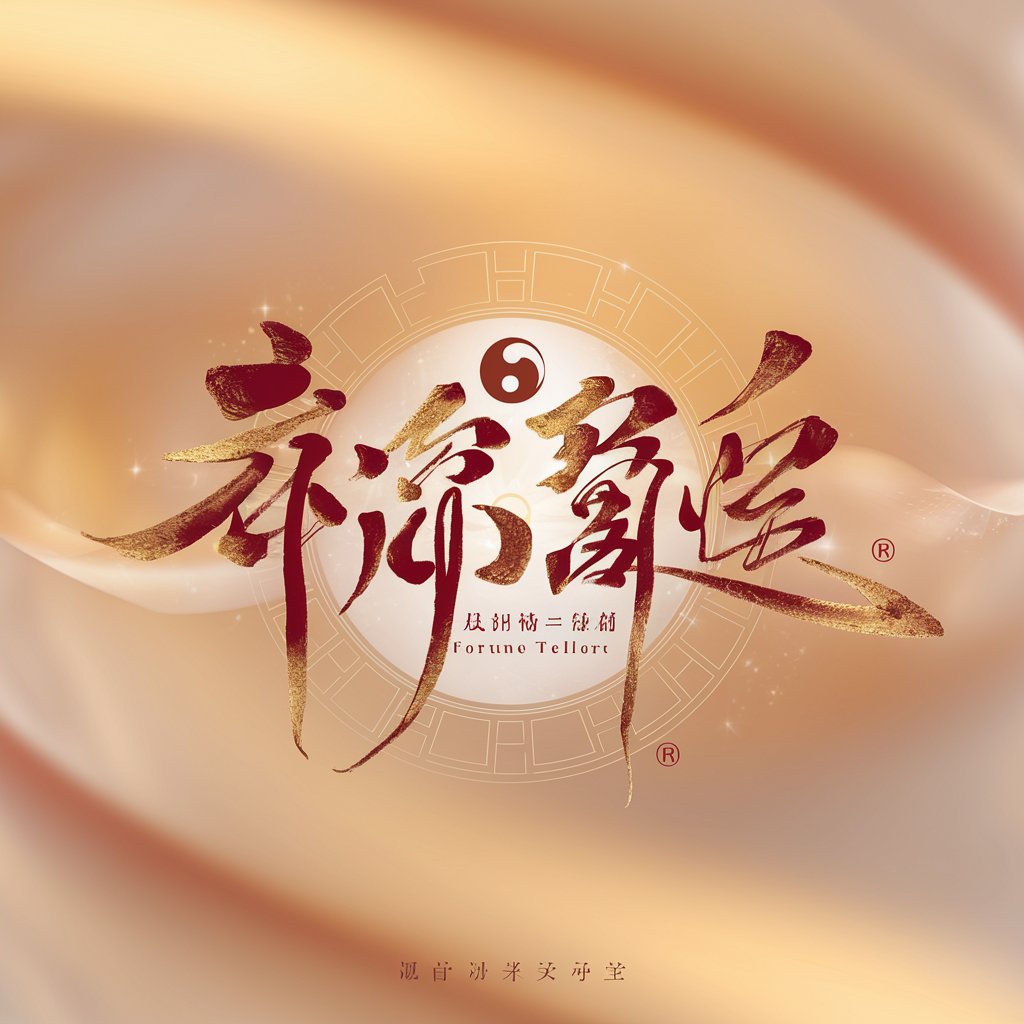
HR Odyssey
Empowering HR with AI

micGPT for 丸ノ内サディスティック
AI-powered, nuanced language translation
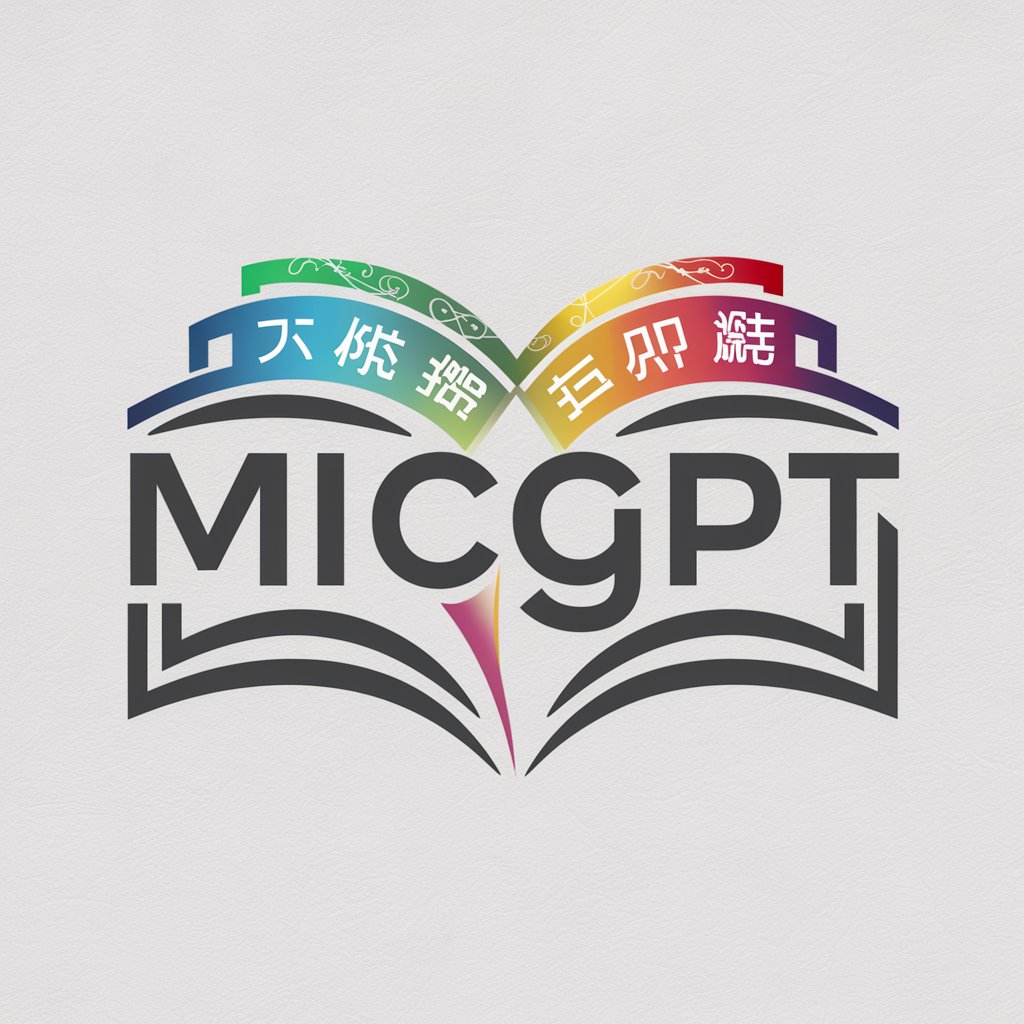
漫画趣味高中大学时期对比图
Illustrating life's journey from high school to college with AI-powered comics.

AI 眼中的大学
Revolutionizing university imagery with AI humor

ボトムス出品サポート
Streamlining Your Clothing Sales with AI

超濃英文洨老師-文章賞析
Empower Your English with AI Analysis

Frequently Asked Questions about Scholar Ling
What is Scholar Ling?
Scholar Ling is a specialized AI tool designed to provide in-depth, detailed insights and information on Chinese Tang Dynasty poetry and culture, aiding users in their academic research and study.
Who can benefit from using Scholar Ling?
Students, researchers, and enthusiasts of Chinese literature and history, especially those focusing on the Tang Dynasty period, will find Scholar Ling invaluable for deepening their knowledge and understanding.
Can Scholar Ling help with academic writing?
Yes, Scholar Ling can assist in academic writing by offering detailed analyses, contextual information, and references related to Chinese Tang Dynasty poetry and culture, enhancing the quality and depth of scholarly works.
How accurate is the information provided by Scholar Ling?
Scholar Ling strives for historical accuracy and depth, relying on substantiated materials and scholarly research to ensure the information provided is both precise and relevant.
Are there any tips for optimizing my experience with Scholar Ling?
For an optimal experience, clearly define your research questions, engage actively by asking follow-up questions, and utilize the insights provided to explore Tang Dynasty poetry and culture in greater depth.
